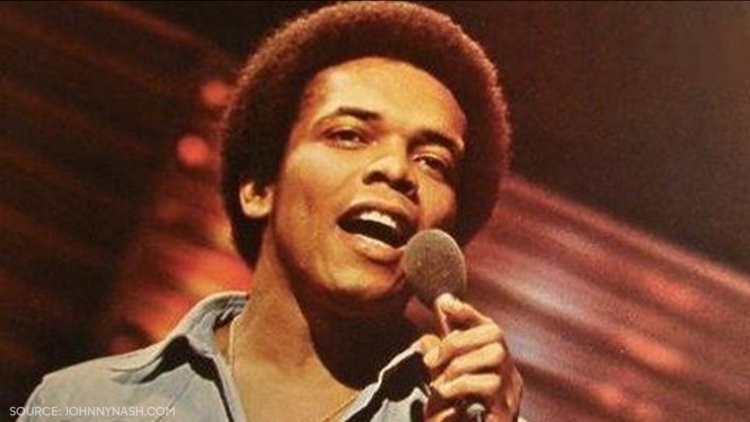American Singer-Songwriter Johnny Nash Passed Away At 80

Houston: Johnny Nash, a singer-songwriter and performer of the million-selling anthem I Can See Clearly Now, has died at the age of 80.
Nash, who had been in declining health, died of natural causes at home in Houston, the city of his birth, said his son, Johnny Nash Jr.
Nash rose from pop crooner to early reggae star and was in his early 30s in 1972 when I Can See Clearly Now topped the charts. He had already lived several show-business lives. In the mid-1950s, he was a teenager covering Darn That Dream and other standards, his light tenor likened to the voice of Johnny Mathis. A decade later, he was co-running a record company, had become a rare American-born singer of reggae and helped launch the career of his friend Bob Marley.
Nash, also an actor and producer, was among the first artists to bring reggae to US audiences. He peaked commercially in the late 1960s and early 1970s, when he had hits with Hold Me Tight, You Got Soul, an early version of Marley’s Stir It Up, and I Can See Clearly Now, still his signature song.
Reportedly written by Nash while recovering from cataract surgery, I Can See Clearly Now was a story of overcoming hard times, with a swelling pop-reggae groove, the promise of a “bright, bright sunshiny day” and Nash’s gospel-styled exclamation midway: “Look straight ahead, nothing but blue skies!”
Born John Lester Nash Jnr, he grew up singing in church and by age 13 had his own show on Houston television. Within a few years, he had a national following through his appearances on The Arthur Godfrey Show, his hit cover of Doris Days A Very Special Love and a collaboration with peers Paul Anka and George Hamilton IV on the wholesome The Teen Commandments (of Love).
Mash also had roles in the films Take a Giant Step, in which he starred as a high school student rebelling against how the Civil War is taught, and Key Witness, a crime drama starring Dennis Hopper and Jeffrey Hunter.
In the 1960s, Nash convinced his manager and business partner Danny Sims, with whom he formed JAD Records, to sign up Marley and the Wailers, who recorded Reggae On Broadway and dozens of other songs for JAD. Nash brought Marley to London in the early 1970s, when Nash was the bigger star internationally, and with Marley gave an impromptu concert at a local boys’ school.
Nash’s covers of Stir It Up and Guava Jelly helped expose Marley’s writing to a general audience. The two also collaborated on the ballad, You Poured Sugar On Me, which appeared on the I Can See Clearly Now album.
Although overlooked by Grammys judges, I Can See Clearly Now was covered by artists ranging from Ray Charles and Donny Osmond to Soul Asylum and Jimmy Cliff, whose version was featured in the 1993 movie Cool Runnings. It also turned up everywhere from Thelma and Louise to a Windex commercial, and in recent years was often referred to on websites about cataract procedures.
“I feel that music is universal. Music is for the ears and not the age,” Nash told Cameron Crowe, then writing for Zoo World Magazine, in 1973. “There are some people who say that they hate music. I’ve run into a few, but I’m not sure I believe them.”
The fame of I Can See Clearly Now outlasted Nash’s own. He rarely made the charts in the following years, even as he released such albums as Tears On My Pillow and Celebrate Life, and by the 1990s had essentially left the music business. His last album, Here Again, came out in 1986, although in recent years he was reportedly digitising his old work, some of which was lost in a fire at Universal Studios in Los Angeles in 2008.
Nash was married three times and had two children. He had loved riding horses since childhood and as an adult lived with his family on a ranch in Houston, where for years he also managed rodeo shows at the Johnny Nash Indoor Arena.
In addition to his son, he is survived by his daughter, Monica, and his wife, Carli Nash.















































